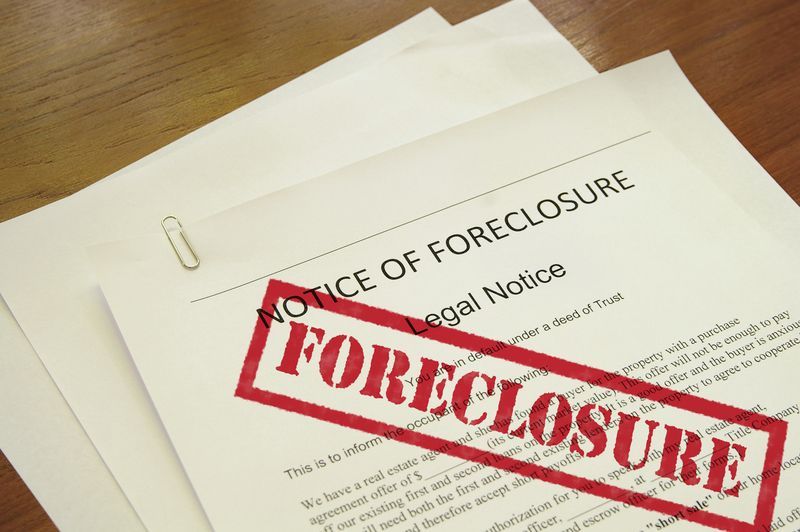Call or Text (757) 946-8784 to get a cash offer on your house!
A Practical Guide to Selling Distressed Properties Easily

Selling distressed properties can present unique challenges for homeowners seeking a smooth transaction. With the right approach and guidance, navigating this process can become much easier. From identifying potential buyers to addressing necessary repairs and legal considerations, this resource offers a comprehensive overview of the steps involved in selling distressed properties successfully. By following the advice outlined in this guide, homeowners can streamline the selling process and achieve their goals efficiently, even in challenging circumstances.
Understanding Distressed Properties
Distressed properties are homes that are under a foreclosure order or up for sale by the owner owing to an unavoidable necessity. They are often seen as a challenge in the real estate market due to their condition or the situation of the seller. Characteristics of distressed properties can include physical deterioration, location in less desirable neighborhoods, or financial burdens such as liens against the property. These homes can also come from situations where the owner cannot maintain the property, leading to its decline.
There are many reasons why a property might become distressed. Financial difficulties are the most common cause, where homeowners may struggle with mortgage payments due to job loss, medical bills, or unexpected financial emergencies. Other times, it could be due to neglect or inability to perform essential repairs and maintenance, leading the property to fall into a state of disrepair. Natural disasters can also cause significant damage to homes, making them distressed properties if the owners cannot afford to make necessary repairs.
Selling distressed property in the traditional real estate market presents several impacts and challenges for homeowners. Firstly, these properties are often less appealing to buyers looking for homes in move-in-ready condition, resulting in a smaller pool of potential buyers. Distressed properties typically sell for much lower prices than their well-maintained counterparts in the same neighborhood. This is because buyers or investors anticipate having to invest significant amounts into repairs and renovations.
The traditional real estate market can be unforgiving to sellers of distressed properties. The process of selling such homes typically requires an appraisal, and inspections, and might necessitate substantial repairs before the sale can even proceed. This makes for a time-consuming and often expensive process for sellers, who may already be under financial or emotional stress. Prospective buyers might use the distressed nature of the property as leverage during negotiations, further reducing the final sale price.
Understanding the nuances of distressed properties is vital for homeowners facing difficult circumstances. These properties pose unique challenges in the traditional real estate market, often making them harder to sell and resulting in lower sale prices. Recognizing these challenges is the first step toward identifying more suitable, stress-free solutions for selling such properties.
Challenges of Selling a Distressed Property
The process of selling a distressed property can often be complicated and daunting, bringing with it a unique set of challenges that sellers must navigate. Understanding these hurdles is crucial for any homeowner looking to sell under such conditions.
Repair and Renovation Costs
One of the most significant challenges in selling a distressed property is the cost associated with necessary repairs and renovations. Distressed properties, by their nature, often require considerable work to bring them up to a condition that is appealing to buyers. This might include anything from structural repairs to cosmetic updates. For sellers already facing financial difficulties, these costs can be prohibitive, effectively trapping them in a situation where they cannot afford to sell their property.
Difficulty in Attracting Traditional Buyers
Another challenge is the difficulty in attracting traditional buyers. Most people looking for a home prefer properties that are move-in ready. A distressed property, which often visibly shows signs of neglect or damage, is less attractive to these buyers. This not only limits the pool of potential buyers but can also significantly extend the amount of time the property sits on the market.
Time-consuming Process and Potential for Delays
The process of selling a distressed property is also inherently more time-consuming. The need for repairs and renovations, coupled with the more limited interest from buyers, means these properties can take a long time to sell. The negotiation process can be prolonged due to the property’s condition, leading to further delays. For sellers in distress, these delays can exacerbate their financial and emotional stress, making it a pressing issue to find a more efficient solution.
Dealing with the Emotional Burden of Selling Under Distress
Perhaps one of the most overlooked challenges is the emotional burden of selling a property under distress. Sellers might be dealing with challenging life circumstances, such as financial hardship, divorce, or the loss of a loved one. The added stress of trying to sell a distressed property can be overwhelming, leading to a feeling of being trapped or without options.
Selling a distressed property presents a multitude of challenges, from financial concerns related to repairs and renovations, difficulty in attracting traditional buyers, time-consuming processes, and delays, to the emotional burdens carried by the sellers. Recognizing these challenges is vital, but finding solutions that can minimize these hardships is equally important for those looking to sell a distressed property.
Selling to a Real Estate Investment Firm: A Simplified Solution
After understanding both the nature of distressed properties and the challenges in selling them, it becomes evident that traditional methods may not always offer the best route for sellers under distress. This is where selling to a real estate investment firm emerges as a compelling alternative, providing a ray of hope for those looking to alleviate the burden quickly and efficiently.
How Real Estate Investment Firms Operate
Real estate investment firms specialize in buying properties in 'as is' condition, offering cash payments and swift closings. These firms understand the challenges associated with distressed properties and have streamlined processes to handle such sales efficiently. Unlike traditional buyers, they look past the visible wear and tear, seeing the potential value in every property.
Benefits of Selling 'As Is' to an Investment Firm
The primary benefit of opting for this route is the ability to sell the property in its current state, without the need for any repairs or renovations. This 'as is' approach can save sellers significant amounts of money and time, making it an attractive option for those under financial strain or requiring a quick sale. The transaction process with investment firms is generally much faster than the traditional market, often closing in a matter of weeks rather than months. This speed can be incredibly beneficial for sellers facing time-sensitive situations.
Testimonials from distressed property sellers who have chosen this route often highlight the relief and peace of mind they experienced. The stress of maintaining a property, managing showings, and haggling over prices in an uncertain market is replaced with a simple, straightforward transaction.
Steps to Take When Considering an Investment Firm Offer
If considering this option, sellers should first conduct thorough research to find a reputable firm. Exploring reviews and testimonials, asking for proof of funds, and seeking legal advice before signing any agreement are prudent steps. It is also beneficial to explore different offers, ensuring the best possible outcome for their situation.
Market Trends Affecting Distressed Property Sales
The landscape for distressed properties is ever-changing, influenced by broader market trends. It's essential to have a pulse on both local and national real estate trends, as they can significantly impact the offers investment firms might present. Websites like the National Association of Realtors (NAR) and financial education sources like Investopedia provide valuable insights into market trends, helping sellers make informed decisions.
While selling a distressed property presents unique challenges, real estate investment firms offer a viable, stress-reducing solution. By accepting properties 'as is,' these firms remove the need for costly and time-consuming repairs, offering a quick and efficient sale process. For many, this option provides a much-needed alternative to the traditional route, allowing sellers to move forward from challenging circumstances with greater ease and speed.
Facing the challenge of selling your distressed property? Let Coast 2 Coast Home Buyers be your hassle-free, quick solution.









